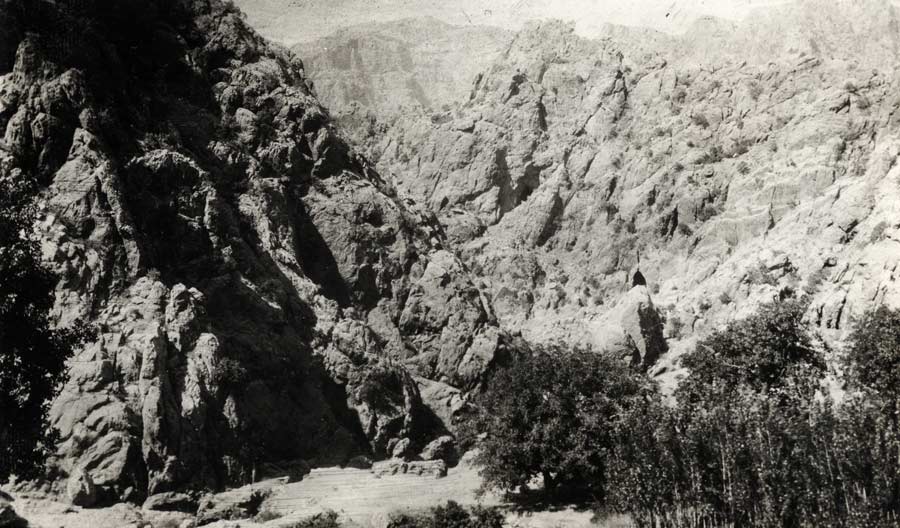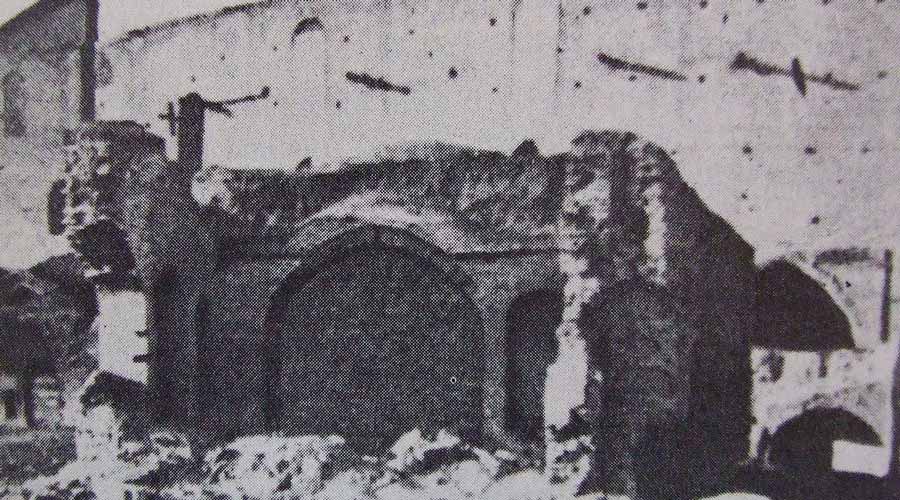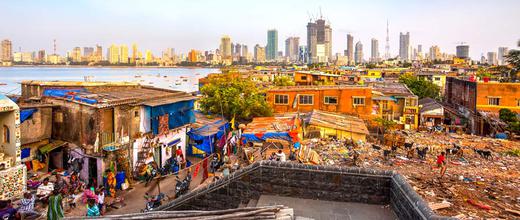The views expressed in our content reflect individual perspectives and do not represent the authoritative views of the Baha'i Faith.
Moses spent many years in the desert. Christ wandered in the wilderness for 40 days. Muhammad went to Hira to pray and meditate. Baha’u’llah, homeless, lived in the caves of Kurdish Iraq for two years.
“The first followers of every divine messenger were the poorest and most humble people”
Each of the founders of the world’s major Faiths experienced some kind of persecution and deprivation, which profoundly affected their lives.

Each prophet lived in poverty, just as the poor people of the world do, and each directed their messages to those without means. The first followers of every divine messenger were the poorest and most humble people – perhaps because the spirit of their Faiths disdained material wealth and taught that real riches come from the spirit:
The highest station, the supreme sphere, the noblest, most sublime position in creation, whether visible or invisible, whether alpha or omega, is that of the Prophets of God, notwithstanding the fact that for the most part they have to outward seeming been possessed of nothing but their own poverty. – Abdu’l-Baha, The Secret of Divine Civilization
The Baha’i teachings continue that emphasis on helping the poor, and also add a unique new spiritual principle to it, by directing human society to completely eliminate the extremes of poverty and wealth in the world:
Certainly, some being enormously rich and others lamentably poor, an organization is necessary to control and improve this state of affairs. It is important to limit riches, as it is also of importance to limit poverty. Either extreme is not good. To be seated in the mean is most desirable. If it be right for a capitalist to possess a large fortune, it is equally just that his workman should have a sufficient means of existence.
A financier with colossal wealth should not exist whilst near him is a poor man in dire necessity. When we see poverty allowed to reach a condition of starvation it is a sure sign that somewhere we shall find tyranny. Men must bestir themselves in this matter, and no longer delay in altering conditions which bring the misery of grinding poverty to a very large number of the people. – Abdu’l-Baha, Paris Talks
The extremes of wealth and poverty have an impact on the lives of most of us, regardless of our economic condition, and the Baha’i teachings say that the time has come for humanity to abolish those extremes:
There is need of an equalization so that all may have an apportionment in the comforts of life. For example, the wealthy man, whose table is adorned with all kinds of delicacies, must allow the poor to have at least his necessities. It is not right that one should have all the delicacies and all foods on his table when another is in want of the necessities of life. The rich must be merciful to the poor and out of their own willing hearts should they uplift them, they should not be forced. There must be a readjustment and legislation which shall equalize conditions until humankind may have composure and rest with utmost ease. – Abdu’l-Baha, Star of the West
The inordinate disparity between rich and poor, a source of acute suffering, keeps the world in a state of instability, virtually on the brink of war. Few societies have dealt effectively with this situation. The solution calls for the combined application of spiritual, moral and practical approaches. A fresh look at the problem is required, entailing consultation with experts from a wide spectrum of disciplines, devoid of economic and ideological polemics, and involving the people directly affected in the decisions that must urgently be made. – The Universal House of Justice, The Promise of World Peace
That basic Baha’i principle, instead of emerging from some concerned committee or as a result of a group policy decision, arises directly from the example of the life of Baha’u’llah. As a young man in Persia, Baha’u’llah, the prophet and founder of the Baha’i Faith, exemplified this principle by his dedicated work to combat poverty, becoming known as “The Father of the Poor” and “Our Father of Compassion.” He helped poor and homeless people, gave them food and funds, and asserted the rights of the poor and downtrodden in governmental councils.
“His focus on the plight of the poor meant that many of Baha’u’llah’s contemporaries and relatives worried he would spend himself and his own family into poverty as a result of his generous philanthropy”
After his father’s passing, Baha’u’llah, born into and raised by a prosperous family that owned land and had considerable influence in the political affairs of Persia, rejected the widely-held expectations that he would inherit his father’s prominent position as a wealthy minister of state. Instead, as a young man Baha’u’llah began to dedicate his family’s assets to a range of charitable endeavors that helped alleviate the poverty around him. Kind and compassionate, he became deeply involved with and beloved by the poor in his country.
His focus on the plight of the poor meant that many of Baha’u’llah’s contemporaries and relatives worried he would spend himself and his own family into poverty as a result of his generous philanthropy. But Baha’u’llah persisted, giving this counsel to all humanity:
If ye meet the abased or the down-trodden, turn not away disdainfully from them, for the King of Glory ever watcheth over them and surroundeth them with such tenderness as none can fathom except them that have suffered their wishes and desires to be merged in the Will of your Lord, the Gracious, the All-Wise. O ye rich ones of the earth! Flee not from the face of the poor that lieth in the dust, nay rather befriend him and suffer him to recount the tale of the woes with which God’s inscrutable Decree hath caused him to be afflicted. – Baha’u’llah, Gleanings from the Writings of Baha’u’llah
For proclaiming his new Faith, which teaches the unity and oneness of the entire human family, Baha’u’llah soon faced enormous adversity. Unjustly thrown into prison by a tyrannical government that feared those new teachings, Baha’u’llah and his family suffered tremendous loss very quickly, going from relative wealth to homelessness literally overnight. At that time, in the middle of the 19th century, imprisonment in Persia meant officials and others could freely confiscate or even destroy properties and possessions at will – which they did. After an early life of prosperity, this extreme privation and poverty gave Baha’u’llah an even greater understanding of the plight of the poor.

Because of Baha’u’llah’s tenderness and altruism toward the poor; and because of his son and successor Abdu’l-Baha’s lifelong devotion to the problems of poor people; and because of the resulting Baha’i teachings that offer innovative spiritual solutions to economic problems; today Baha’is everywhere advocate and assiduously labor for the alleviation of the extremes of poverty and wealth.
All over the world, Baha’is work in charitable organizations, anti-poverty associations, NGOs, homelessness service providers, addiction treatment programs, micro-lending banks, agricultural cooperatives, grassroots economic development projects, non-profit foundations, innovative educational charities and a wide spectrum of global endeavors designed to end poverty – all encouraged by Baha’u’llah’s admonition:
O Ye Rich Ones on Earth! The poor in your midst are My trust; guard ye My trust, and be not intent only on your own ease. – Baha’u’llah, The Hidden Words
The Baha’i teachings view poverty differently – instead of regarding poor people as somehow less capable or divinely favored than others, Baha’is see poverty as a systemic issue, related directly to the way our individual souls and governmental structures fail to recognize and incorporate the spiritual principles of the unity of the human family. Baha’is believe that we need to look at the subject of poverty with fresh eyes, through a spiritual lens:
The fundamentals of the whole economic condition are divine in nature and are associated with the world of the heart and spirit. This is fully explained in the Baha’i teaching, and without knowledge of its principles no improvement in the economic state can be realized. The Baha’is will bring about this improvement and betterment but not through sedition and appeal to physical force – not through warfare, but welfare. Hearts must be so cemented together, love must become so dominant that the rich shall most willingly extend assistance to the poor and take steps to establish these economic adjustments permanently. If it is accomplished in this way, it will be most praiseworthy because then it will be for the sake of God and in the pathway of His service. – Abdu’l-Baha, The Promulgation of Universal Peace
This emphasis on love for humanity and consideration for all people as part of a single human family forms the foundation for a completely new and different approach to solving the problems of poverty and homelessness.

















Comments
Sign in or create an account
Continue with Facebookor